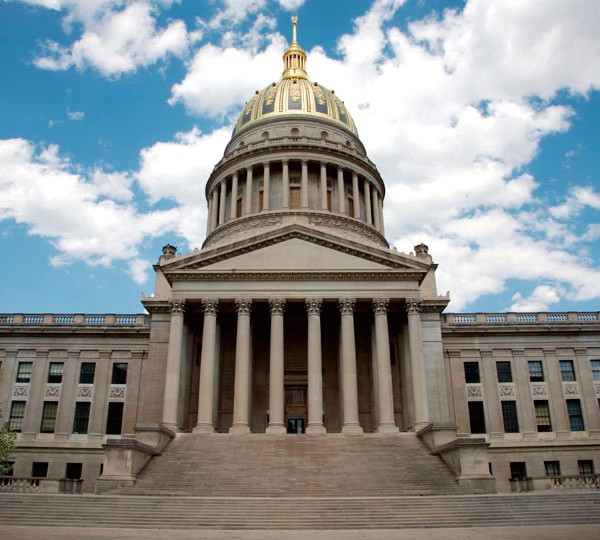CHARLESTON — The state Supreme Court hasn’t budgeted to account for a new intermediate court of appeals, but its justices aren’t necessarily against it.
The intermediate court of appeals is likely to come up — again — during Senate committee meetings next week at the Capitol.
A bill that would establish mid-level appeals courts in southern and northern West Virginia was introduced last week at the Legislature. Its first stop will probably be in the Senate Judiciary Committee.
When the court system’s budget proposal was being discussed Friday before the House Finance Committee, many delegate questions had to do with the intermediate appeals court.
“If you choose to create an intermediate court, we’ll have to ask for that to be funded,” Chief Justice Beth Walker told delegates.
The Supreme Court prepared a fiscal note to estimate how much an intermediate court of appeals might cost.
The full estimate was $7.6 million.
Last year when a similar bill was considered, the Supreme Court estimated a significantly higher cost, $11.7 million. That fiscal note was much more detailed and included several written objections to the intermediate court proposal.
The estimate the Supreme Court offered this year reflects the bill as it is, Walker said, but could change if the proposal changes.
“I firmly believe our Constitution vests in you, the Legislature, the authority to determine whether an intermediate court is feasible,” Walker said.
But she said justices would like to be involved with planning for the intermediate court if lawmakers decide to go ahead with it.
“What we want to do is be part of the conversation. We know how to run courts,” she said. “We can offer statistical information. We want to provide as much information as we can to make it the best we can.”
The intermediate court would have the power to review final judgments in civil cases from circuit court, in cases from family court or administrative law hearings. The intermediate court would not review the outcomes of criminal cases.
“As the bill is currently drafted it would only involve the appeals of about 400 of our cases if you look at last year’s caseload,” Walker said Friday.
The court would establish two districts, north and south.
The northern district includes Barbour, Berkeley, Brooke, Doddridge, Grant, Hampshire, Hancock, Hardy, Harrison, Jefferson, Marion, Marshall, Mineral, Monongalia, Morgan, Ohio, Pendleton, Pleasants, Pocahontas, Preston, Randolph, Ritchie, Taylor, Tucker, Tyler, Wetzel and Wood counties.
The southern district would include Boone, Braxton, Cabell, Calhoun, Clay, Fayette, Gilmer, Greenbrier, Jackson, Kanawha, Lewis, Lincoln, Logan, Mason, McDowell, Mercer, Mingo, Monroe, Nicholas, Putnam, Raleigh, Roane, Summers, Upshur, Wayne, Webster, Wirt and Wyoming.
Three judges would serve in each district. They would serve staggered terms. The governor’s version of the bill calls for the judges to be appointed, although elections have been discussed.
The court’s business would move from venue to venue within the district, led by the convenience of litigants.
That’s meant to help keep costs low, but the fiscal note provided by the Supreme Court last year objected. “First, there are quite likely insufficient facilities available with appropriate courtrooms to lend,” according to that fiscal note.
The Supreme Court last year also suggested there would be hidden costs such as hotel bills for traveling judges and staff.
The bill now under consideration calls for the intermediate court to be set up and operable by July 1, 2020.
On Friday, Delegate Isaac Sponaugle, D-Pendleton, asked questions aimed at determining whether an intermediate court is necessary.
“In regards to the intermediate court, has the caseload been trending upwards in the last few years?” Sponaugle asked.
Overall, Walker said, “the number of appeals filed with the Supreme Court is pretty level.”
“So it’s basically static. There’s no increase right now,” Sponaugle said.
The delegate followed up by asking for confirmation that the Supreme Court, one way or another, reviews every appeal.
Walker agreed, saying justices require the same set of briefs for every appeal. They then may decide a case based on the briefs and issue a memorandum opinion, or they may hear oral arguments. Either way, the case is reviewed and receives a decision.




